When you are designing your home or office space, secondary furniture is very important to its style and purpose. In spite of the fact that it does not draw more attention than the main items such as sofas, beds and dining tables; secondary furniture includes beside tables, poufs, buffets and nightstands for tidiness of stuffs and beautification in our rooms. This guide explores what might be placed in secondary furniture to make the most of these versatile pieces.
Understanding Secondary Furniture
Secondary furniture refers to supportive or accent pieces that complement primary furniture. Such pieces often serve specific purposes like storage, surfaces or even decor enhancement. Among them are side tables, console tables, bookshelves, nightstands and benches; each piece offers distinctive possibilities for both practice and creativity.
Common Secondary Furniture and Suggested Items to Place
| Secondary Furniture | Suggested Items |
|---|---|
| Side Tables/End Tables | Lamps, coasters, books, magazines, remote controls, decorative objects like vases or candles. |
| Console Tables | Key trays, decorative bowls, photo frames, plants, small sculptures, mail organizers, slim lamps. |
| Buffets/Sideboards | Dinnerware, serving trays, cutlery, table linens, wine bottles, decorative seasonal items. |
| Ottomans/Storage Benches | Throw blankets, toys, books, storage bins, serving trays to convert the ottoman into a surface. |
| Bookshelves/Wall Units | Books, decorative vases, small sculptures, photo frames, storage baskets, indoor plants. |
| Nightstands | Bedside lamps, phones, chargers, alarm clocks, glasses, books, medications, water bottles or glasses. |
What Might Be Placed in a Secondary Furniture
1. Side Tables and End Tables
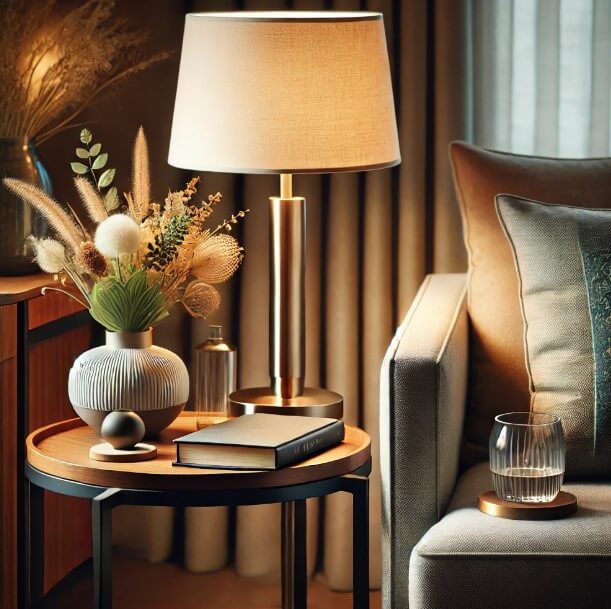
These can be found near sofas or beds where you would usually see end tables or side tables. Among other things they’re good for:
- Lighting: Small table lamps for task lighting or ambiance.
- Drinks: Coasters or trays for beverages.
- Reading Materials: books/magazines/e-readers on top of them.
- Decorative Items: Vases, candles, or small sculptures.
- Essentials: Remote controls, eyeglasses, or keys.
2. Console Tables
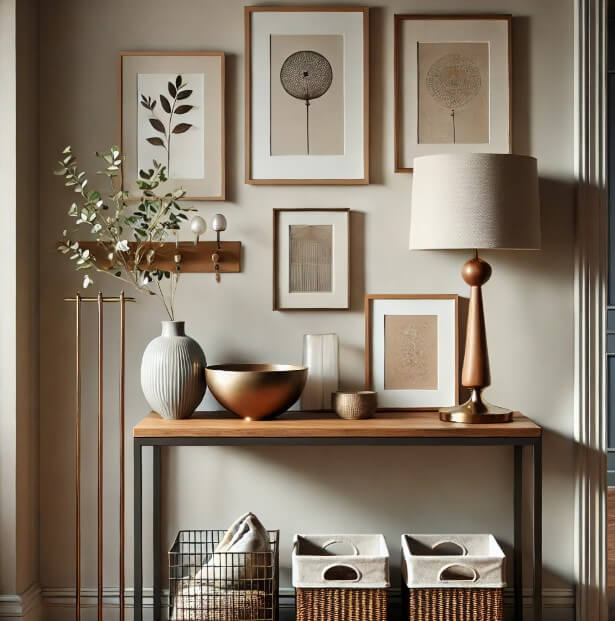
Typically placed in entryways, hallways, or living rooms, console tables serve as versatile surfaces for:
- Entryway Essentials: Key holders, mail trays, or decorative bowls.
- Decorative Displays: Picture frames, plants, or curated art pieces.
- Storage: Drawers or baskets underneath for miscellaneous items.
- Lighting: Slim lamps for subtle illumination.
3. Buffets and Sideboards
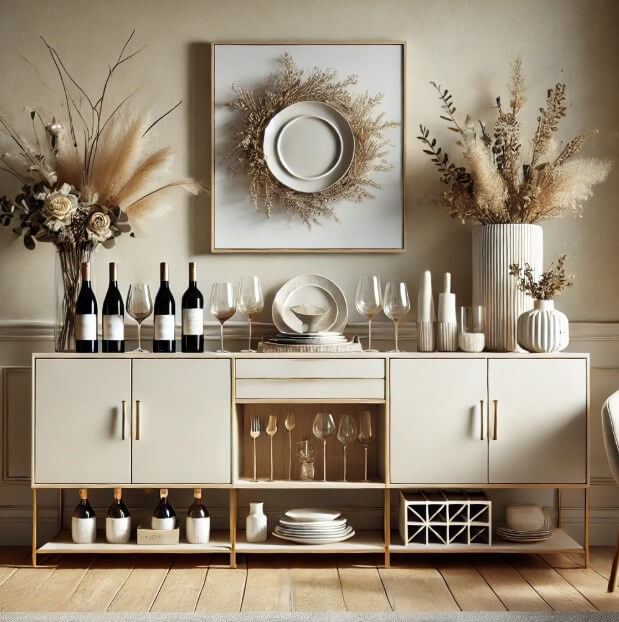
Buffets and sideboards, often used in dining areas, offer significant storage capacity. Items to place include:
- Dinnerware: Dishes, bowls and serving plates.
- Table Linens: Like napkins, tablecloths or placemats.
- Barware: For example glasses, cocktail making stuffs or wine bottles.
- Decor: Seasonal ornaments, floral arrangements, or art objects.
4. Ottomans and Storage Benches
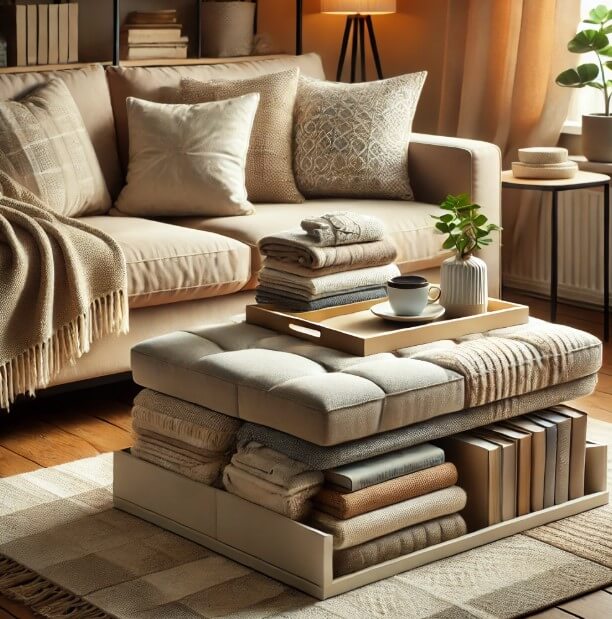
Ottomans and benches are multifunctional providing seating spaces footrests as well as concealed storage places that can accommodate:
- Blankets: Throw blankets or quilts.
- Toys: Children’s play items.
- Books: Extra reading materials.
- Trays: To convert the ottoman into a surface for serving.
5. Bookshelves and Wall Units
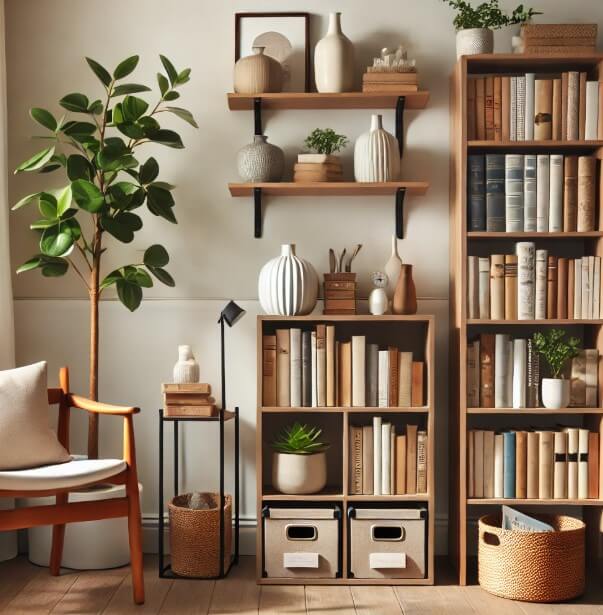
Bookshelves are versatile storage units that cater to both organization and design. Common items include:
- Books: A curated collection of novels, manuals, or photo albums.
- Decorative Objects: Small sculptures, vases, or framed photos.
- Plants: Indoor plants like succulents or ferns.
- Storage Bins: smaller/miscellaneous containers of baskets/boxes.
6. Nightstands
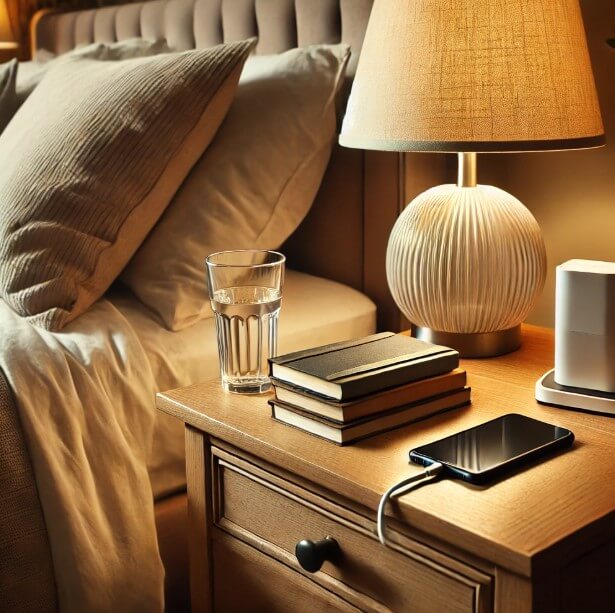
Nightstands are essential in bedrooms, keeping essentials within reach. They typically hold:
- Lighting: Bedside lamps.
- Technology: Phones, chargers, or alarm clocks.
- Personal Items: Glasses, jewelry, or medications.
- Books: Current reads or journals.
- Water: A glass or bottle for hydration.
Maximizing Secondary Furniture for Organization and Style
To make the most of secondary furniture, consider the following tips:
- Layering Decorative Items: Combine items of varying heights for visual interest.
- Utilize Storage Space: Use hidden compartments in ottomans or drawers in sideboards to reduce clutter.
- Group Items: Cluster small items like books and decor on trays for a cohesive look.
- Seasonal Updates: Rotate decor based on the season to keep the space fresh and inviting.
Aesthetic Fusion with Primary Furniture
The overall design concept should be considered when selecting secondary furniture. This helps prevent contradictions by matching materials, colors, or finishes. For example, a wooden bedside table next to a leather couch will add warmth while a mirrored console table would enhance modern décor theme
FAQs About What Might Be Placed in a Secondary Furniture
1. What is the main function of secondary furniture?
Secondary furniture supports primary furniture by offering additional storage, surface space, and aesthetic enhancement.
2. How do I choose what to place on a side table?
Place functional items like lamps and coasters alongside decorative accents like vases or framed photos.
3. Can secondary furniture be used for storage?
Yes, pieces like ottomans, sideboards, and nightstands often have built-in storage for organization.
4. How do I style a console table in an entryway?
Use key trays, plants, and decorative objects to create a welcoming and practical space.
5. Is secondary furniture necessary in small spaces?
Absolutely. Compact secondary furniture like nesting tables or floating shelves maximizes functionality in limited areas.
Conclusion: The Role of Secondary Furniture in Functional Spaces
Secondary furniture is much more than an afterthought. These pieces provide essential storage, convenience, and style, enhancing both the functionality and visual appeal of a space. By thoughtfully choosing and organizing what might be placed in a secondary furniture, you can create a harmonious and practical living environment tailored to your needs.


